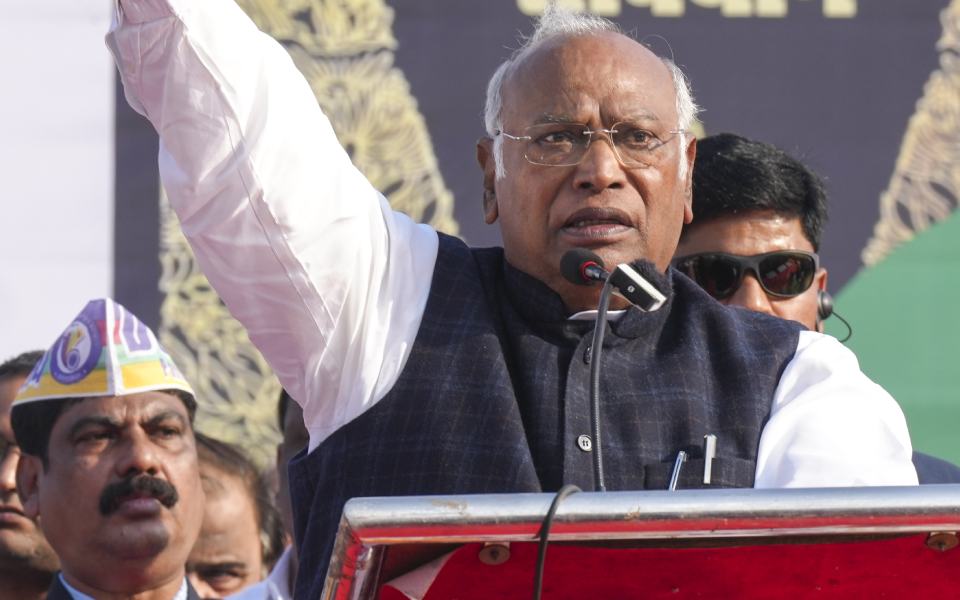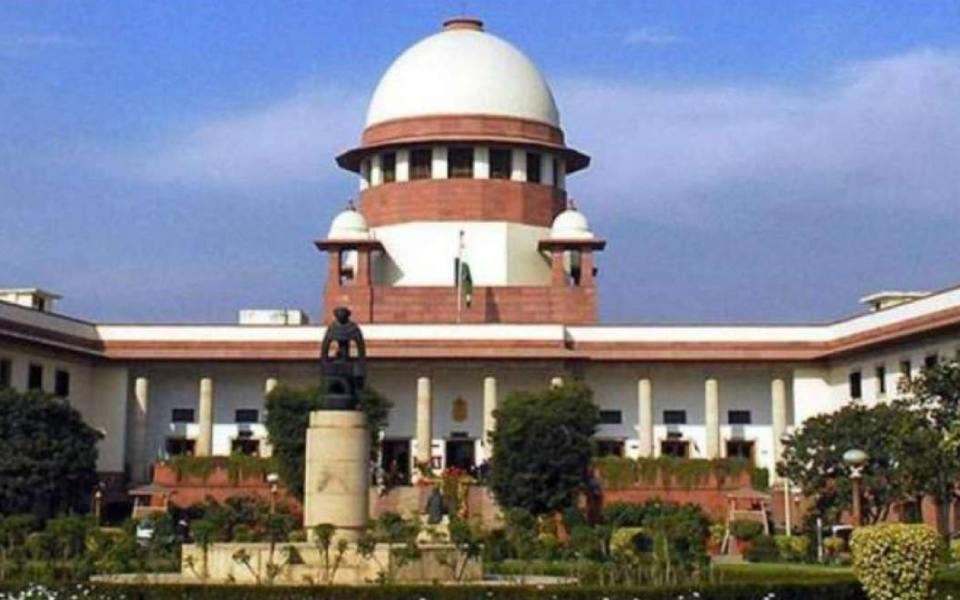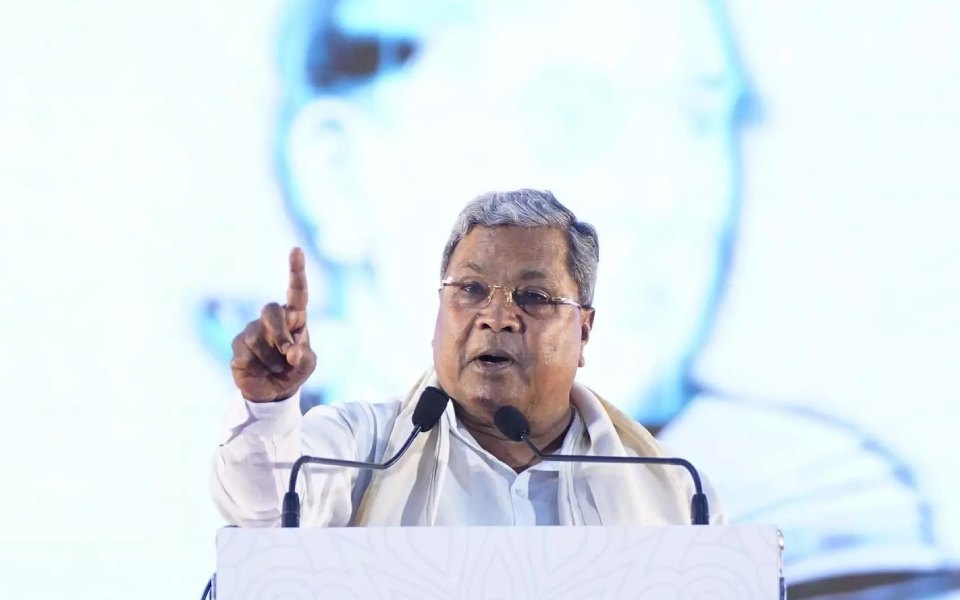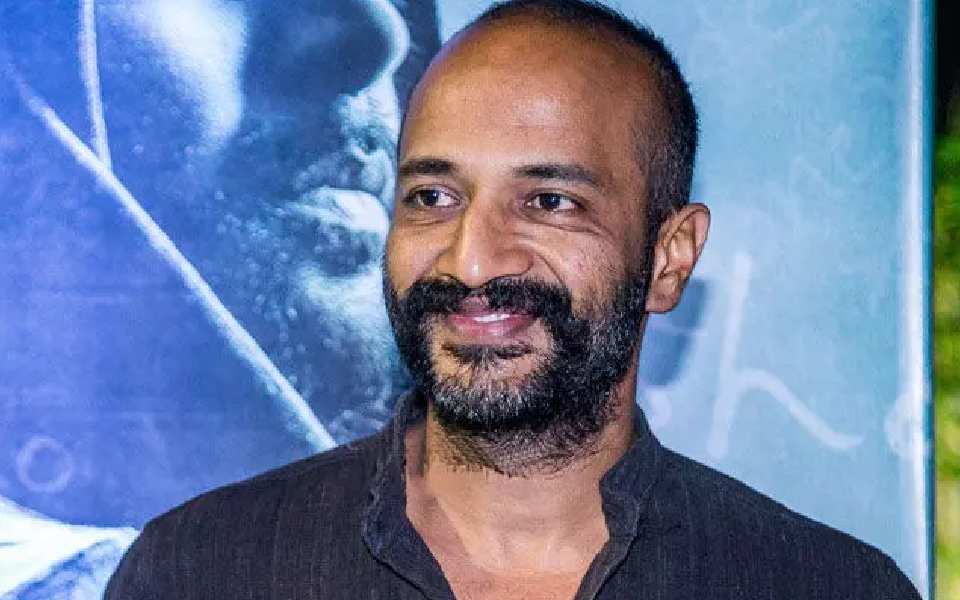New Delhi, Jan 9: Congress president Mallikarjun Kharge on Thursday alleged that the Narendra Modi government has made the Goods and Services Tax (GST) a means of "looting" the hard-earned money of the poor and middle class and demanded that it end this "tax terrorism" and "loot" in the upcoming Union Budget.
Kharge further alleged that nine types of rates make GST "complex and absurd" and not a "good and simple tax".
"Call it 'Gabbar Singh Tax' or 'Household Destruction Tax' or 'Give Sitharaman Tax'! Whatever name we call BJP's GST, one thing is certain -- the Modi government has made GST a means of looting the hard-earned money of the poor and the middle class," he said in a post in Hindi on X.
The GST is a tax on public consumption, said the Congress chief, adding that the Modi government rubs salt into their wounds by celebrating record GST collections.
"Two-thirds of the total GST -- i.e. 64 per cent -- comes from the pockets of the poor and the middle class but only 3 per cent GST is collected from the billionaires. The Corporate Tax rate has been reduced from 30 per cent to 22 per cent," he said.
Kharge said GST has been imposed on 36 agricultural products of farmers for the first time. Even 18 percent GST has to be paid on the premiums of Life Insurance and Health Insurance, he said.
The Leader of Opposition in Rajya Sabha also said Income Tax collection increased by 240 per cent and GST collection increased by 177 per cent in the last five years.
"The Congress party demands that in the upcoming general budget, the Modi government should put an end to 'tax terrorism' and looting of the public," Kharge said in his post.
The Congress also highlighted the problems faced by the people and businesses due to the imposition of GST and held press conferences in 12 cities across the country.
"गब्बर सिंह टैक्स" कहें या "गृहस्थी सत्यानाश टैक्स" या फ़िर "Give Sitharaman Tax" !
— Mallikarjun Kharge (@kharge) January 9, 2025
भाजपा के GST को हम जिस भी नाम से बुलाए, एक बात तय है कि —
मोदी सरकार ने GST को गरीब और मध्यम वर्ग से उनकी गाढ़ी कमाई लूटने का माध्यम बना दिया है।
1⃣नौ प्रकार के GST दर इसे "Good & Simple… pic.twitter.com/OBBA0isnH1
Let the Truth be known. If you read VB and like VB, please be a VB Supporter and Help us deliver the Truth to one and all.
New Delhi, Jan 9: The Supreme Court on Thursday dismissed a batch of pleas seeking to review its October 2023 verdict declining legal sanction to same-sex marriage.
A five-judge bench of Justices B R Gavai, Surya Kant, B V Nagarathna, P S Narasimha and Dipankar Datta took up about 13 petitions related to the matter in chambers and dismissed them.
"We do not find any error apparent on the face of the record. We further find that the view expressed in both the judgements is in accordance with law and as such, no interference is warranted. Accordingly, the review petitions are dismissed," the bench said.
It said the judges have carefully gone through the judgements delivered by Justice (since retired) S Ravindra Bhat speaking for himself and for Justice (since retired) Hima Kohli as well as the concurring opinion expressed by Justice Pamidighantam Sri Narasimha, constituting the majority view.
The bench also rejected a prayer made in the review petitions for hearing in an open court.
According to practice, the review pleas are considered in chambers by the judges.
The new bench was constituted after Justice Sanjiv Khanna, the present CJI, recused from hearing the review petitions on July 10, 2024.
Notably, Justice P S Narasimha is the only member of the original Constitution bench comprising five judges which delivered the verdict, as former CJI D Y Chandrachud and Justices S K Kaul, Ravindra Bhat and Hima Kohli have retired.
A five-judge Constitution bench led by then CJI Chandrachud on October 17, 2024, refused to accord legal backing to same-sex marriages and held there was "no unqualified right" to marriage with the exception of those recognised by law.
The apex court, however, made a strong pitch for the rights of LGBTQIA++ persons so that they didn't face discrimination in accessing goods and services available to others, safe houses known as "garima greh" in all districts for shelter to members of the community facing harassment and violence, and dedicated hotlines in case of trouble.
In its judgement, the bench held transpersons in heterosexual relationships had the freedom and entitlement to marry under the existing statutory provisions.
It said an entitlement to legal recognition of the right to union, akin to marriage or civil union, or conferring legal status to the relationship could be only done through an "enacted law".
The five-judge Constitution bench delivered four separate verdicts on a batch of 21 petitions seeking legal sanction for same-sex marriages.
All five judges were unanimous in refusing the legal recognition to same-sex marriage under the Special Marriage Act and observed it was within Parliament's ambit to change the law for validating such a union.
While former CJI Chandrachud wrote a separate 247-page verdict, Justice Kaul penned a 17-page judgement where he broadly agreed with the former's views.
Justice Bhat, who authored an 89-page judgement for himself and Justice Kohli, disagreed with certain conclusions arrived at by the former CJI, including on applicability of adoption rules for such couples.
Justice Narasimha in his 13-page verdict was in complete agreement with the reasoning and conclusion of Justice Bhat.
The judges were unanimous in holding that queerness was a natural phenomenon and not an "urban or elite" notion.
In his judgement, the former CJI recorded Solicitor General Tushar Mehta's assurance of forming a committee chaired by the cabinet secretary to define and elucidate the scope of entitlements of such couples in a union.
The LGBTQIA++ rights activists, who won a major legal battle in 2018 in the Supreme Court, which decriminalised consensual gay sex, moved the apex court seeking validation of same-sex marriages and consequential reliefs such as rights to adoption, enrolment as parents in schools, opening of bank accounts and availing succession and insurance benefits.
Some of the petitioners sought the apex court to use its plenary power besides the "prestige and moral authority" to push the society to acknowledge such a union and ensure LGBTQIA++ persons led a "dignified" life like heterosexuals.





